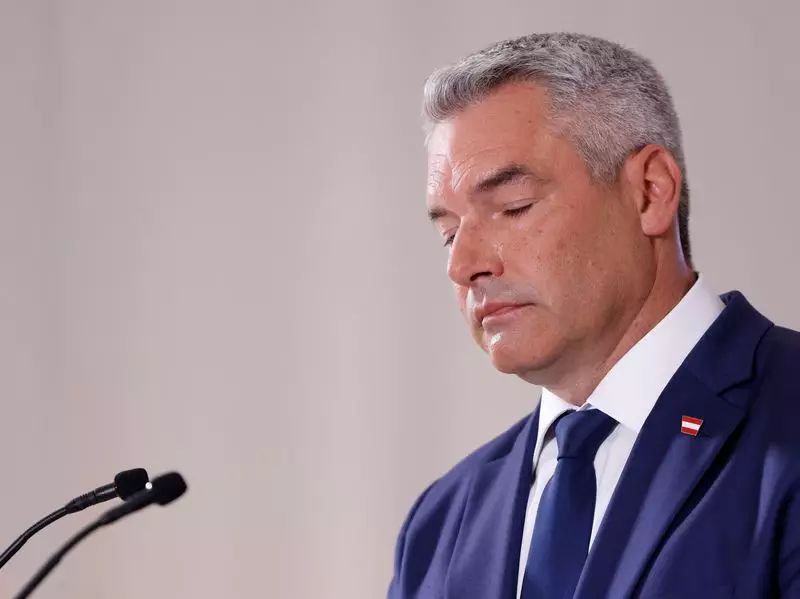Austria is currently grappling with a significant political upheaval following the unexpected resignation of Chancellor Karl Nehammer. This surprising turn of events has prompted the ruling Austrian People’s Party (OVP) to convene an urgent leadership meeting, as the search for a new chancellor intensifies amidst a growing climate of political uncertainty. Nehammer’s departure signifies not just a personal setback, but a larger crisis within the OVP, facing pressure to adapt to the shifting political landscape molded by the ascendance of the far-right Freedom Party (FPO).
The catalyst for Nehammer’s resignation was the failure of coalition negotiations initially aimed at forming a centrist government to counter the FPO’s increasing popularity. Having emerged victorious in September’s parliamentary election with roughly 29% of the vote, the FPO has solidified its status as a formidable political force. With this backdrop, President Alexander Van der Bellen is now positioned with limited choices: a snap election or an unexpected partnership with the FPO, led by Herbert Kickl, both of which could steer Austria into uncharted territory.
As the leaders of the OVP convened to navigate this crisis, the comments of Markus Wallner, the governor of Vorarlberg, underscored the gravity of the situation. He articulated concerns about the potential for a national crisis if swift action was not taken to establish a new governing structure. Many within the party share Wallner’s apprehension, hesitant to hasten a snap election that could delay the formation of a government for months to come.
The implications of Nehammer’s resignation reverberate throughout the political landscape, revealing the delicate balancing act that the OVP must now perform. Nehammer had previously denounced the FPO and its leader Kickl, citing concerns regarding extremism and trustworthiness. His departure opens the door for a successor who may adopt a different stance, possibly paving the way for renewed collaboration with the FPO. Yet this possibility raises significant challenges for the OVP—the reality of becoming a junior partner in a coalition led by the FPO may be politically unpalatable to many within the party.
The Rise of the Freedom Party
In the wake of Nehammer’s resignation, the FPO is capitalizing on the political chaos. The party has not only maintained its support but appears to be strengthening its position at the expense of traditional political rivals such as the OVP and the Social Democrats, whose popularity seems to be in decline. Voter sentiment indicates that dissatisfaction with established parties is driving support toward the FPO, particularly on issues such as immigration—a topic that resonates deeply among segments of the Austrian electorate.
The historical context of the OVP’s relationship with the FPO adds further complexity to this situation. Between 2017 and 2019, the two parties formed a coalition, benefiting from shared principles on immigration and national security. However, internal conflicts, exemplified by a political scandal involving the privacy of the FPO’s previous leader, ultimately led to the dissolution of this alliance. Now, as the FPO’s popularity grows, there is a palpable sense of irony in the resurgence of the party it was once deemed perilous to govern with.
With speculations rife regarding potential successors to Nehammer’s leadership, political observers note that the options currently available are less than ideal for the OVP. Former prominent leaders such as Sebastian Kurz, despite his established track record, are reportedly no longer in contention. This leaves the party with less recognized figures such as Wolfgang Hattmannsdorfer as possible leaders, which may not inspire confidence among party supporters.
The intensity of the political discourse continues to escalate, with the FPO unabashedly declaring, “Austria needs a Chancellor Kickl now.” As this turbulent situation evolves, it showcases the challenges that accompany governing in a climate where traditional parties contend with the rise of populism and far-right ideologies. The next few weeks will be pivotal for Austria, as the nation must navigate the complexities of a coalition government or, potentially, a snap election that may reshape its political spectrum dramatically. The stakes are high, and the outcome remains uncertain as Austria finds itself at a critical crossroads in its democratic journey.

